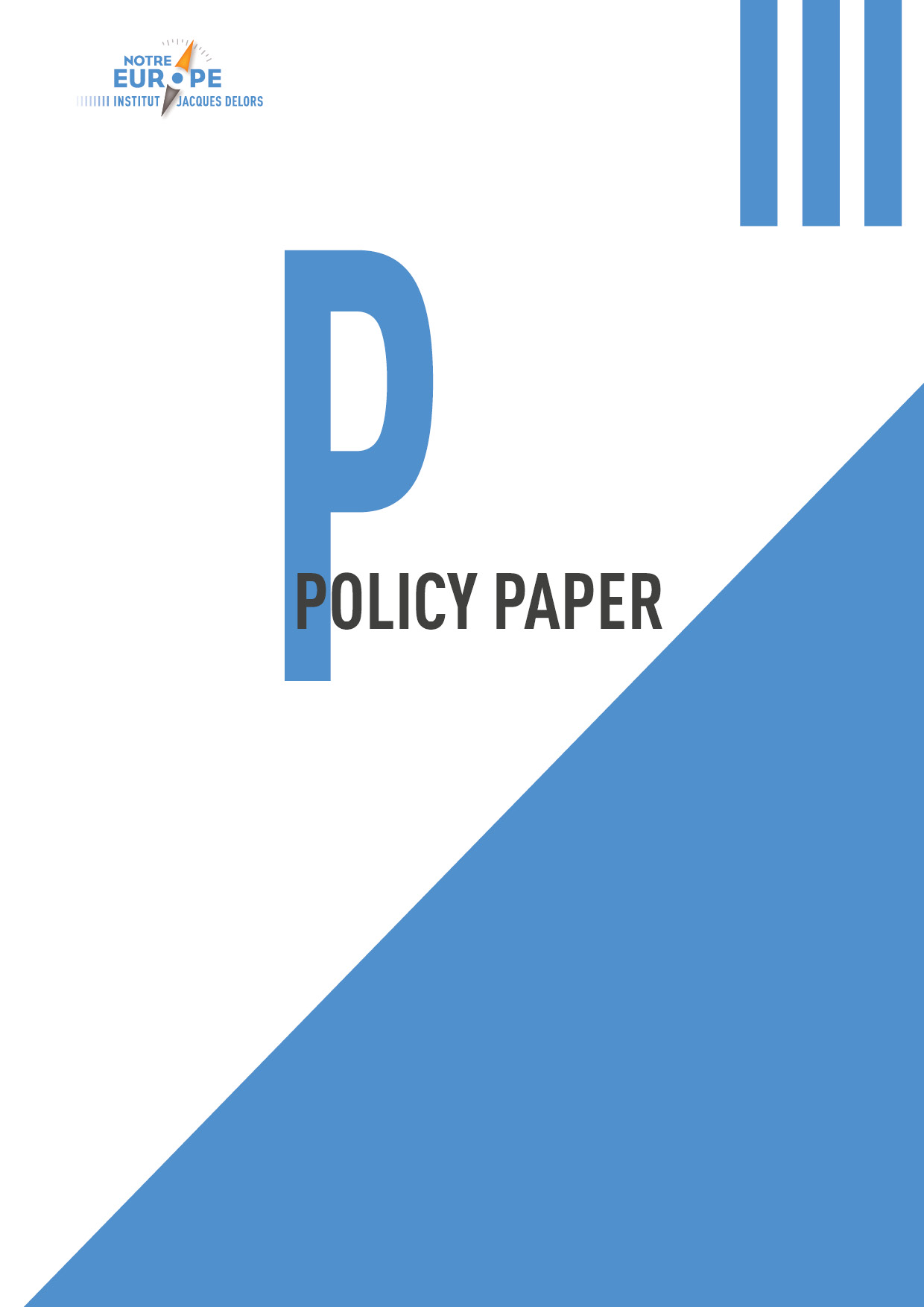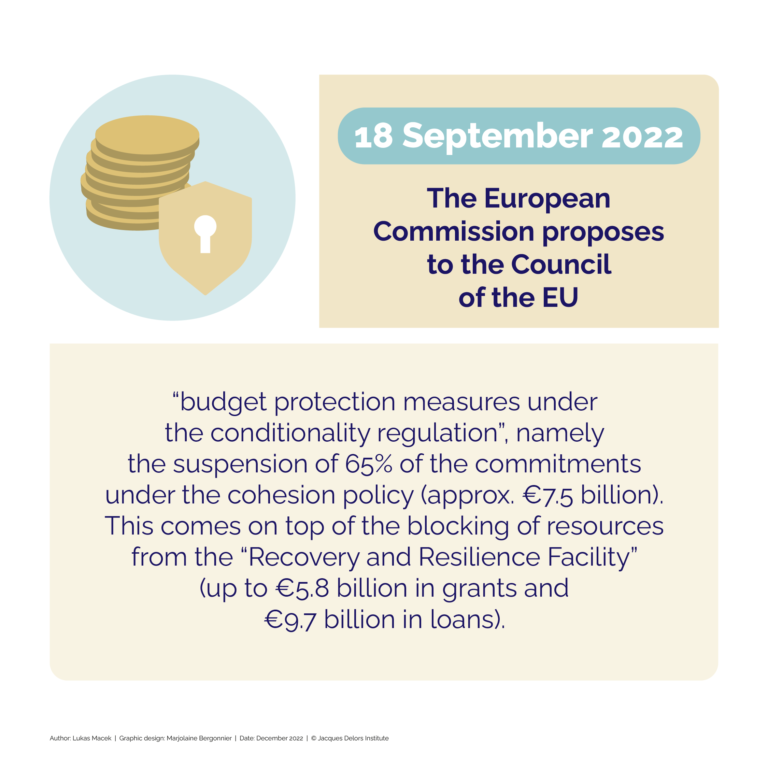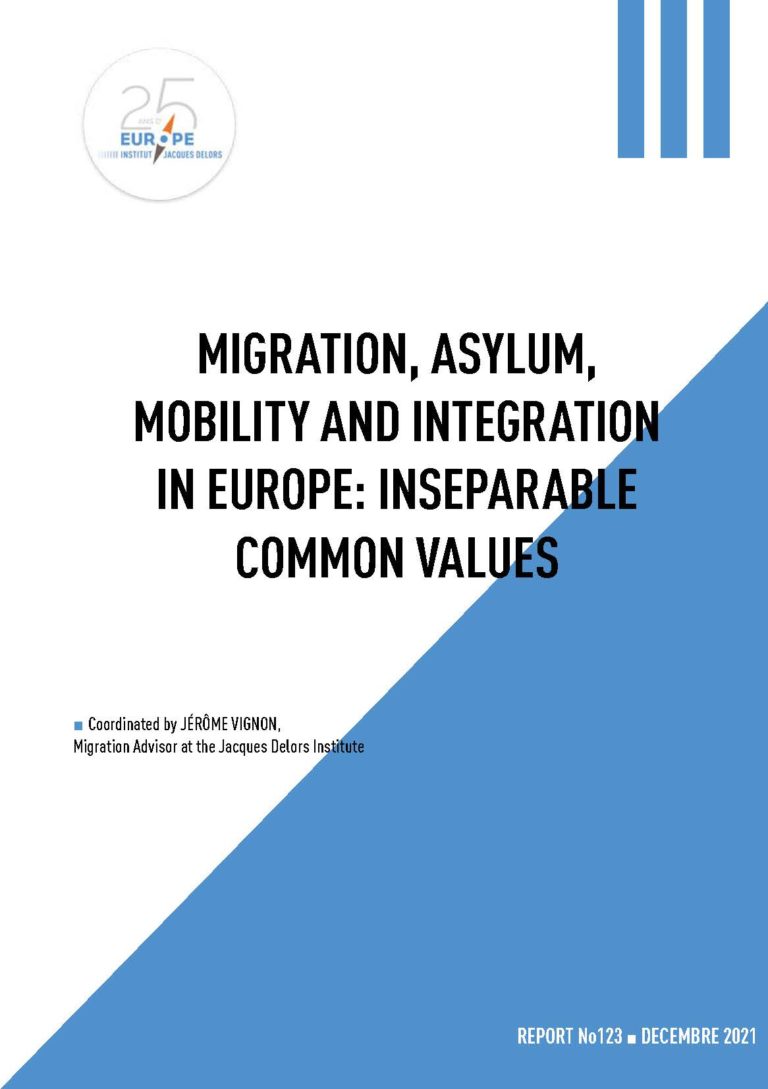Policy paper 196
Solidarity 2.0
Cohesion policy will have to respond, both in its ambition and its content, to the dual problem of adapting to geopolitical, socio-economic, technological and environmental change and renewing forms of solidarity. If we want to ensure its continued existence, we must reform it.
Territorial cohesion may be enshrined in the Lisbon Treaty but, since 2007, the concept of European solidarity has weakened to the point of vanishing almost completely. The legitimacy of the EU as a whole is at stake. The current framework regulation of the cohesion policy provides the most support to underdeveloped regions in relation to the convergence objective, less finance to other regions in order to stay with the EU 2020 Strategy objectives, and even less subsidies to support territorial cooperation.
It becomes clear that the important contribution of cohesion policy to public investment and the achievement of the goals laid down in the EU 2020 strategy will not be enough to convince national policy-makers and European citizens that maintaining funding for all regions is in their own interest. Consequently, if we want to ensure cohesion policy’s continued existence, we must substantially reform it.
In the programming period beginning in 2020, cohesion policy will therefore have to respond, both in its ambition and its content, to the dual problem of adapting to geopolitical, socio-economic, technological and environmental change and renewing forms of solidarity. Given its visibility in the daily lives of citizens, it is no exaggeration to argue that public support for the pursuit of other major European projects depends on the ability of cohesion policy to rise to this challenge.
In this Policy Paper, realised with the support of the European Commission – DG REGIO, Marjorie Jouen, adviser at the Jacques Delors Institute, first reviews the theoretical basis for the notion of solidarity, outlining its uses in cohesion policy over successive programming periods as well as presenting the current challenges to solidarity and the need to promote it within the EU. In the second part, she examines various ways of reconstituting cohesion policy by putting forward a series of proposals for the future.
It becomes clear that the important contribution of cohesion policy to public investment and the achievement of the goals laid down in the EU 2020 strategy will not be enough to convince national policy-makers and European citizens that maintaining funding for all regions is in their own interest. Consequently, if we want to ensure cohesion policy’s continued existence, we must substantially reform it.
In the programming period beginning in 2020, cohesion policy will therefore have to respond, both in its ambition and its content, to the dual problem of adapting to geopolitical, socio-economic, technological and environmental change and renewing forms of solidarity. Given its visibility in the daily lives of citizens, it is no exaggeration to argue that public support for the pursuit of other major European projects depends on the ability of cohesion policy to rise to this challenge.
In this Policy Paper, realised with the support of the European Commission – DG REGIO, Marjorie Jouen, adviser at the Jacques Delors Institute, first reviews the theoretical basis for the notion of solidarity, outlining its uses in cohesion policy over successive programming periods as well as presenting the current challenges to solidarity and the need to promote it within the EU. In the second part, she examines various ways of reconstituting cohesion policy by putting forward a series of proposals for the future.
SUR LE MÊME THÈME
ON THE SAME THEME
PUBLICATIONS
The power struggle between the European Union and Hungary

Infographic
29/11/2022 | Lukáš Macek |
Welcoming Ukrainian refugees in the EU

Brief
20/04/2022 | Klervi Kerneïs |
Migration, asylum, mobility and integration in Europe: inseparable common values

Report
07/12/2021 | Jérôme Vignon |
MÉDIAS
MEDIAS
War in Ukraine Bolstered EU Solidarity—Will it Last?

Interview
03/01/2023 | Sébastien Maillard |
La solidarité financière, solution fragile de l’UE à la flambée de l’énergie

Interview
07/10/2022 | Andreas Eisl |
L’Unione europea si salva solo se ripartiamo dalla solidarietà tra gli Stati

Tribune
27/09/2022 | Thierry Chopin |
ÉVÉNEMENTS
EVENTS
40 YEARS AFTER THE STATE OF SIEGE IN POLAND: SOLIDARITY, THEN AND NOW. 1981-2021, WHAT HAPPENED TO OUR HOPES? [FR]

Event
Académie n°7 – L’Europe économique

Evenement
Webinar | SURE : a welcomed catalyzer for an European Unemployment Insurance*

Evenement
Landerneau, 24 January 2019 — Building a Europe of solidarity

Intervention
Brussels, 6 June 2018 – Cohesion Policy and the new MFF

Intervention
Paris, 6 June 2018 – What territorial cohesion to build in Europe?

Evenement
Tours, 4 April 2018 – Toward a Social and Political Europe?

Intervention
Strasbourg, 8 November 2017 – International Urban Commitments vs. Local Implementations

Intervention
Brussels, 10 July 2017 – Guaranteeing solidarity in EU Cohesion policy post-2020

Intervention
Brussels, 31 may 2017 “The role of structural funds in EU economic governance”

Intervention
Rome, 20 March 2017 – Completing economic governance and enhancing social cohesion

Intervention
Koszeg, 27 February 2017 – Does EU has still a territorial development policy?

Intervention
















